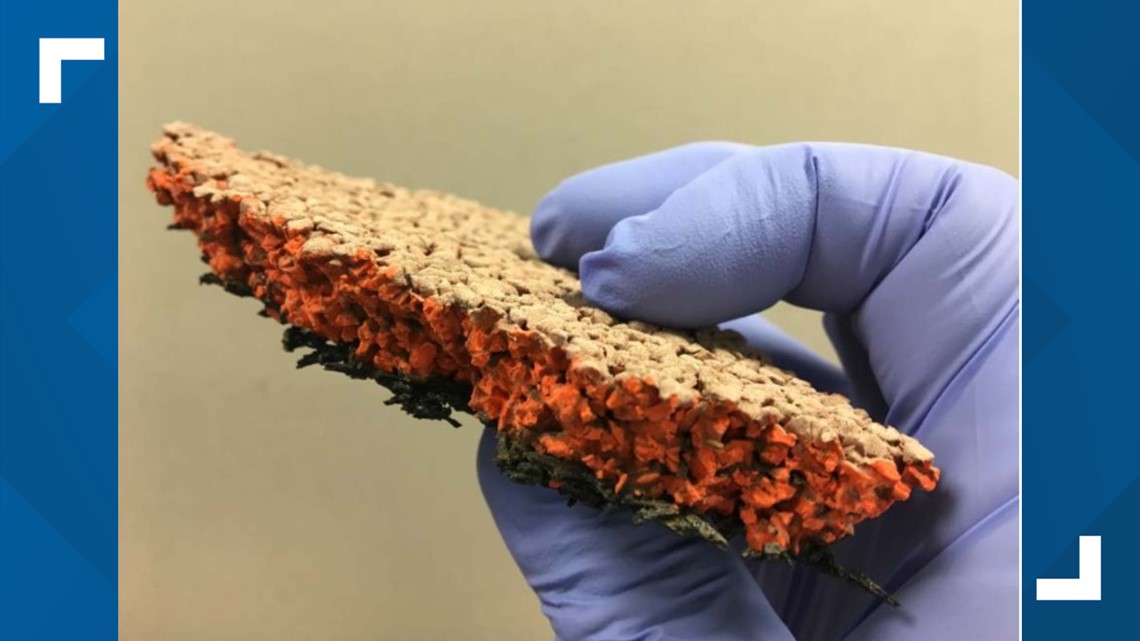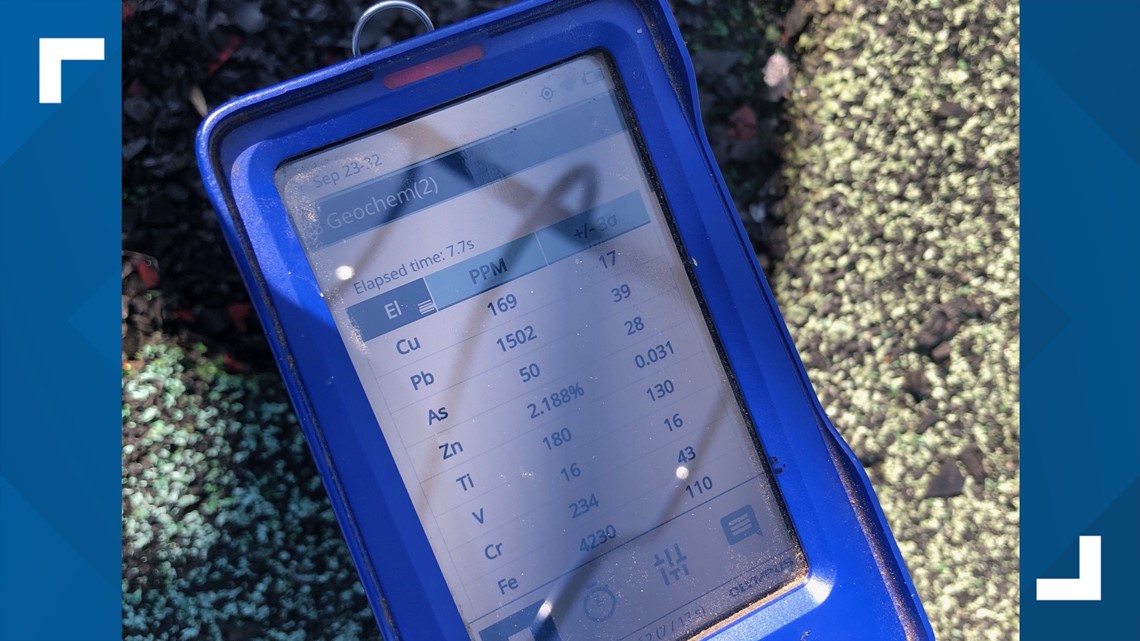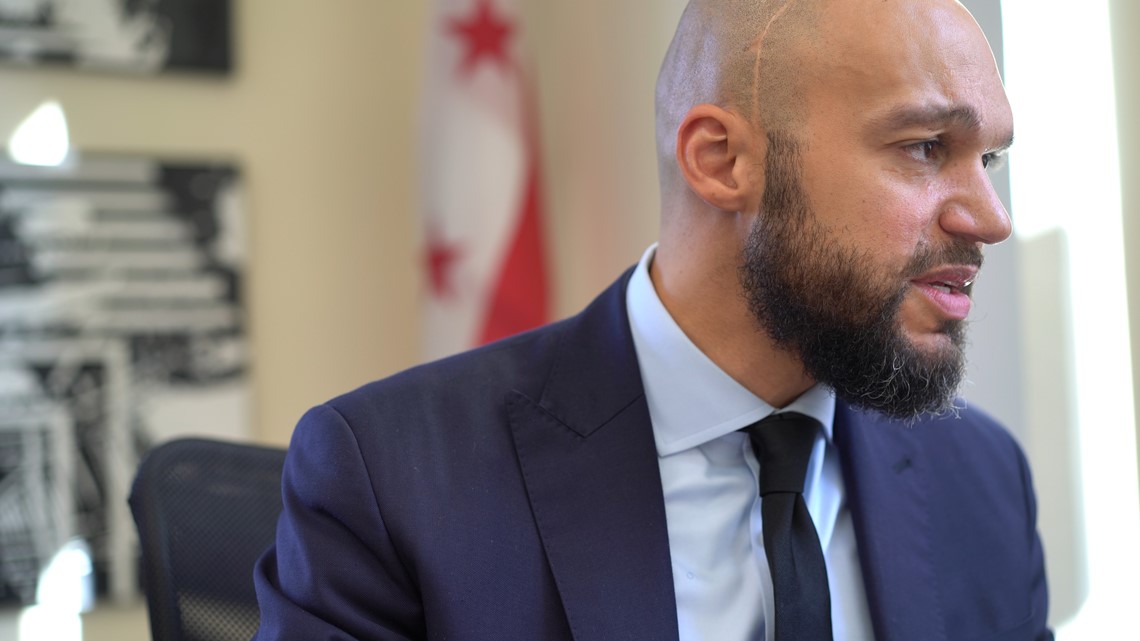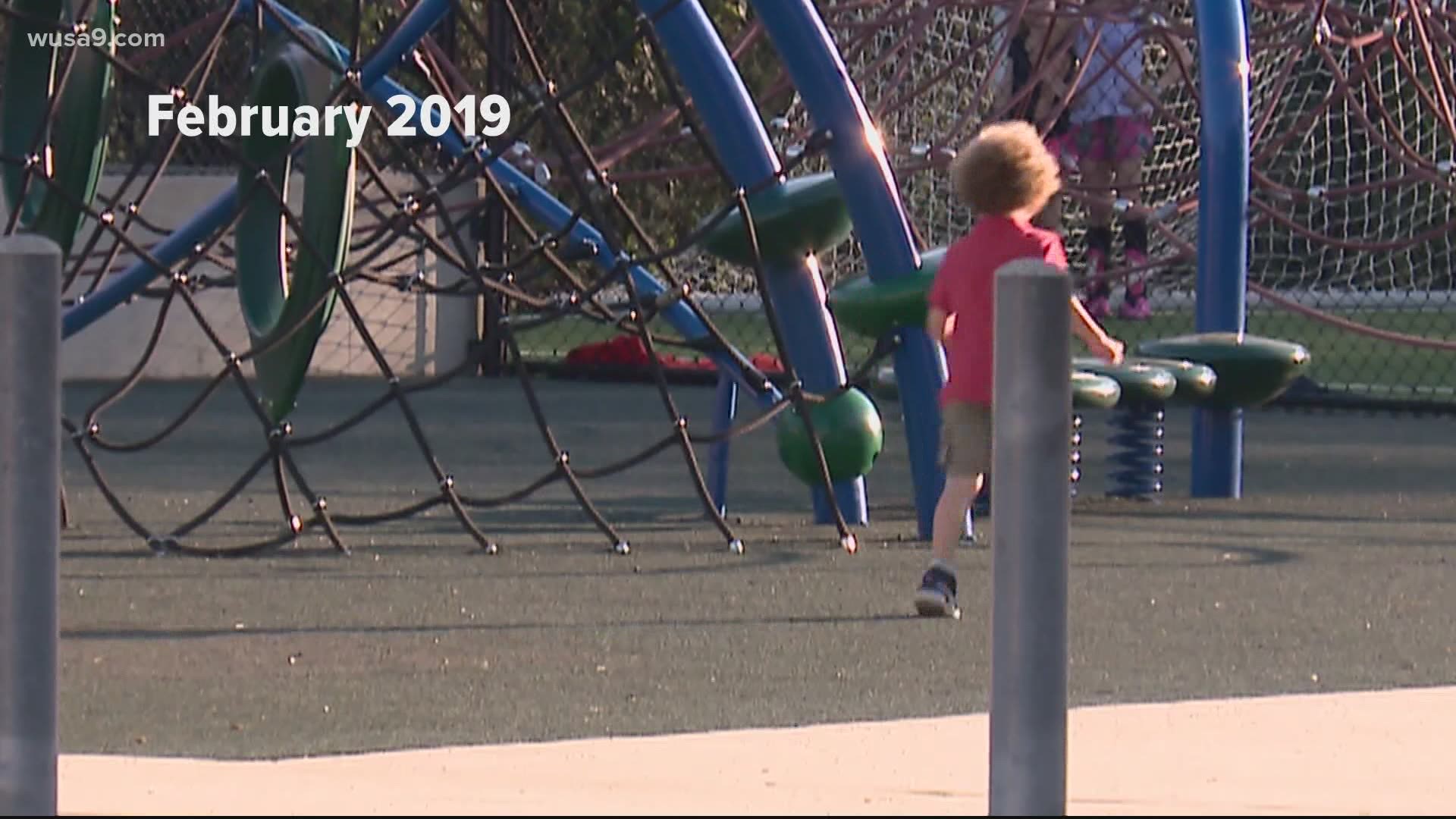WASHINGTON — Legislation pushed by D.C. Councilmember Robert White would force changes in how District maintenance crews ensure playgrounds are safe.
Though the D.C. government said the playgrounds are safe, the Council isn’t convinced and wants additional scrutiny. New lead tests may show the problem isn’t over yet.
After recycled tire crumb rubber ground mat samples WUSA9 gathered alongside parents, in February 2019, tested positive for elevated lead levels, WUSA9 alerted the D.C. government. Because of WUSA9's testing, additional tests were arranged by D.C.’s Department of General Services (DGS).
Those also found elevated lead at several school playgrounds, but the department told parents the problem was fixed and no further testing was required. It attributed the source of the lead to outside environmental factors, including lead paint runoff from neighboring school buildings.
DC Council bill B23-0665 would mandate DC DGS to repeatedly test playgrounds for lead, and examine alternative substances.
Lead is a childhood danger of particular note to LaTricea Adams, president of D.C.-based Black Millennials 4 Flint.
"If you’re not a person of privilege and you have access to participate in a hearing or can allocate time to study and follow the docket, you really may not be knowledgeable that these issues exist," Adams said.


Ingesting lead can cause developmental problems for children. Adams helped rally D.C. parents to tell councilmembers they want immediate notification of any suspected playground lead contamination and regular testing.
"We’re not talking about just sticking something on a website," she said. "We’re talking about intentional community outreach."
DC DGS Director Keith Anderson countered Adams' demands.
"Conducting environmental assessments with no evidence to indicate an assessment is warranted as the bill requires would not improve operations and not enhance community safety," Anderson said.
Advocacy group DC Safe and Healthy Playing Fields recently retested Tenleytown’s Janney Elementary School, where WUSA9 did our first tests in 2019. Their professional-grade scanners indicated elevated levels of lead and arsenic in rubber exposed from new potholes created after D.C.’s last round of tests. Anderson pledged to councilmembers to follow up on these new test results.


“We will continue to monitor and maintain playgrounds so they do not peel and that those surfaces are safe and we don’t have children eating playgrounds," Anderson said.
Councilmember White said he will work to compromise on his bill, which he hopes will give parents confidence their children’s playgrounds are safe.
“We need to figure out a way to make residents more comfortable with the amount of information that we’re giving them and the timeliness of that information," White said.


An alternative to recycled tires in playgrounds is Engineered Wood Fiber, which is like an all-natural mulch one puts in their yard. DC DGS said it’s harder to clean debris and also presents a potential challenge for wheelchairs.

